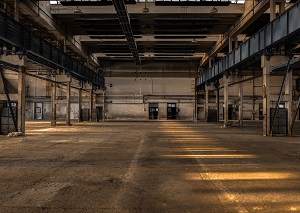Problem Solving 101: Why Custom HVAC Equipment is the Solution

How to Know What You’re Getting When You Buy Industrial/Commercial HVAC Equipment

Summer’s Impact On Industrial HVAC Systems

Custom HVAC equipment can be configured to include combinations of air handling components that will solve almost any industrial HVAC requirement. Custom Equipment is the perfect choice for institutional or industrial applications where high flow rates, very close control and poor air quality conditions exist.
Although more costly than many “out of the box” solutions, they have the longest lifespan and offer the most satisfaction, long-term. Customization of your HVAC air handling system ensures that your system will be the right size.
Oversized systems end up wasting energy due to its inefficiency. On the flip side, an undersized unit will run continually without ever reaching or sustaining optimal temperatures. Both result in higher energy bills. Over the lifespan of a customized piece of HVAC equipment, having a system that is matched correctly to its environment often offers cost savings due to lower operating cost.
Why Customize?
Customize for Efficiency
Data from the 2012 Commercial Buildings Energy Consumption Survey (CBECS) says that the United States consumes 6,963 trillion Btu of energy generated for commercial buildings and that 44% of commercial building energy use is for HVAC and refrigeration. National survey data shows approximately 50% of the HVAC energy is used for cooling, ventilation, and refrigeration purposes. Efforts to reduce energy use led to the development of energy codes and standards to establish minimum efficiency requirements for new-building construction, building additions, and renovations. Customizing HVAC equipment that meets energy code requirements will have a different HVAC system strategy and components than a building that achieves 30% energy savings beyond code minimum. Highly efficient designs using high-performance HVAC systems most often require customization compared with conventional designs.
Customize for Climate
If you live in the western part of the U.S. chances are you live in dry climate conditions. Relief cooling with evaporative coolers can be effectively built directly into an air handler for industrial and commercial environments with practically no limitations as to design wet bulb temperatures. Cold climates susceptible to lengthy freezing periods have particular heating requirements.
Customize for Specific Applications
Some sites have unique HVAC requirements specific to their application. For example, commercial sites such as laundries and restaurant kitchens have particular ventilation needs. Healthcare and data centers need to operate 24/7/365 and both have specific air quality and cooling needs that most “out-of-the-box” solutions fail to fulfill.
Customize for Size
If you have specific dimensional requirements due to space or clearance requirements, a standard, out-of-the-box solution may not suffice. In those cases, an experienced HVAC supplier can build custom sizes to meet your requirements.
Customize for New Construction
An HVAC technician configuring air handling systems for new construction must take a lot into consideration to properly size and customize an HVAC system from the bottom up, including: the size of the building, the number of rooms, height of the ceilings, the number of windows, doors, walkways and building occupants. With new construction comes the opportunity to configure an HVAC system for improved safety and optimal indoor environments at the most affordable time.
Customize for Green Solutions
An HVAC contractor can recommend components like special filtering or capabilities to operate with a building management system. HVAC products can be included in the custom design to improve indoor air quality and incorporate energy efficient components to lower energy consumption and operational costs.
Customize to Respond to Changing Code Requirements
As ventilation requirements and standards evolve, the ability to customize components becomes extremely important. HVAC systems for new construction must meet new codes and specifications. Depending on where you live, components for retrofitting, upgrading, replacing, repairing, and maintaining systems must also meet changing code requirements.
Titan Air’s line of Custom Equipment is designed for commercial and industrial applications with custom designs, options, and controls available to meet your requirements. If you have an application where off-the-shelf just will not cut it, contact us and we can custom design equipment to fit your requirements. A custom system that’s installed according to your unique design application helps to eliminate energy waste and maximize your savings.




